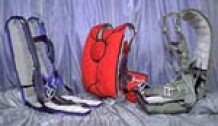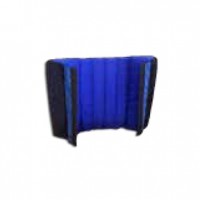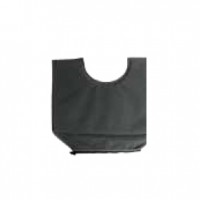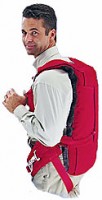THE AVIATION SUPERSTORE FOR ALL YOUR AIRCRAFT & PILOT NEEDS | 877-4-SPRUCE
Para-Cushion 305 Chair Complete Adjustable System With 26 Mid-Lite 124256
$3005.00/Each
Part# 13-03442
MFR Model# 124256
MFR Model# 124256
Overview
| The Paradigm (formerly Strong Enterprises) 305 Chair extends from the userís shoulders to just above the knees. This extended design allows the parachute to be packed uniformly throughout a larger area, keeping it as thin as possible. The padding placement reduces fatigue, allowing users to fly long hours while remaining comfortable. |
WARNING: Cancer and Reproductive Harm - www.P65Warnings.ca.gov. |
Compatibility
- The 305ís shape and design make it the perfect system for aircraft with reclined seating positions such as the Grob, a Giles202, the rear seat of an Extra 300, most gliders and many other aircraft.
Specifications
- 42" (105 cm) tall
- 16" (40 cm) wide
- 2.5" (6 cm) thick (w/ 26í Mid-Lite)
- 4" (10 cm) thick (w/ 30í Lo-Po)
- Approximately 16.5 lbs (7.5 kg) w/ Mid-Lite.
- Approximately 21 lbs (9.5 kg) w/ 30í Lo-Po.
In The Box
- Complete System:
- Harness/Container
- 26í Mid-Lite Canopy or 30í Lo-Po Canopy
- Carry Bag
- Harness Container Only:
- Harness/Container
- Ripcord
- Pilot Chute Lil Grabber
- Carrying Bag
Q&A
Please note, Aircraft Spruce's personnel are not certified aircraft mechanics and can only provide general support and ideas, which should not be relied upon or implemented in lieu of consulting an A&P or other qualified technician. Aircraft Spruce assumes no responsibility or liability for any issue or problem which may arise from any repair, modification or other work done from this knowledge base. Any product eligibility information provided here is based on general application guides and we recommend always referring to your specific aircraft parts manual, the parts manufacturer or consulting with a qualified mechanic.








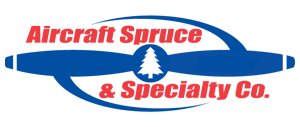 FREE Shipping
FREE Shipping



